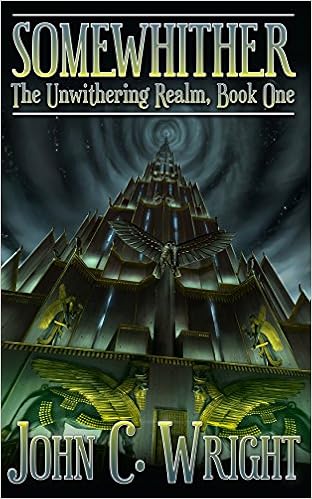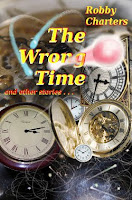grandmother hubbard, to keep food in her cupbord
and pay the rent
on her shoe
on her shoe
sent little jill moffet and her cousin jack
to find some work to do
young jack horner found a secure corner
with jill in the royal kitchen

it was really quite modern
-- it had 'running water'
-- it had 'running water'
their job was, 'run', do the fetch'n
the the royal well was up a hill
at a distance of about one mile
a precarious climb, took lots of time
but the water in the moat was vile

said jack to jill, 'to climb that hill
with the well, we must move faster'
but jill nudged jack, he nudged her back,
they broke into a peal of laughter
so into the slop the bucket did drop
and came up black as a blotter
now, with time to kill, and their bucket of swill,
to pass off as kitchen water
they sat on the wall, but had a great fall
and the pail came splashing after

all the kings horses and all the kings men
went up the hill with the bucket again
they too, fell down, broke the king's crown
and the king came screaming after

jill and jack were given the sack
and meanwhile
back at their shoe...
back at their shoe...
old mother hubbard went to the cupboard
to open a tin of stew
but her little dog laughed, 'old woman, you're daft!
the cupboard
you'll find so bare!
you'll find so bare!


'the cat was ask'n
for the fiddle for busk'n
and since, he hasn't been seen
he said his first act is
in london -- must practice
he hopes to play for the queen'
said hubbard, 'well, now, we've still got our cow'
'you forget so soon! the bean
and the commodities trader, who wiped jack clean
he turned around and made a killing
he sold it to NASA for many a shilling
who sent it into orbit in search of the moon'
laughed the dog, 'funnier than loony toons!'
finally jack and jill returned to their shoe
with their severance pay, and feeling quite blue
'oh granny dear, we sadly fear,
our royal job we've lost!'
'you naughty kids! you've lost your lids!
do you know how much food costs?
I'll whip you both soundly and send you to bed
and feed you broth...'
'not me!' jack said

and out he did hurry to the neighbour, mary
and jill came running after
now teacher mary, could be quite contrary
-- intolerant of laughter

contrary mary had a lamb,
his fleece was white as snow
his fleece was white as snow
he accompanied her to her class, and he helped her garden grow
'teacher mary, quite contrary,
what grows upon your land?'
'what grows? I wouldn't know
you'll have to ask the lamb'
'...so, lamb?'
'(call me sam)
er -- that bean you bought with your cow'

'the magic bean? it hasn't been seen
since the day we had that row!'
'it's really quite grand, it
grew where it landed
look out back, you'll see it right now!'
jack looked up, couldn't see the top
and turned to say to jill,
'shall we climb? i think it's time
it would be quite a thrill
then, who (diddle diddle) should arrive with his fiddle?
but the cat, who was looking quite ill
'pussy cat, pussy cat,
where have you been?'
where have you been?'
'i've been to london
to play for the queen.'
to play for the queen.'
'pussy cat, pussy cat,
how much did you earn there?'
how much did you earn there?'
'hardly enough to cover the bus fair'

'but why (diddle diddle) did they pay you so little?
their budget is over the moon!'
'...and her corgis laughed
and gave me a fright...'
and gave me a fright...'
'...and why are you home so soon?'
'a diller a euro, a ten 'o clock bureau-
crat said i must be out by noon
plus, old king cole, being a merry old soul,
already employs fiddlers, three
they play for their supper of white bread and butter
but the rest they do for free
but you, master jack, why are you back
so soon from the royal court?'
'alas,' said jill, 'they said, "you will
bake a pie", but jack miss-heard
instead of "berries" numbering four and twenty
jack thought that they said "bird"
(what he heard as "bird",
was a reference to his brain
was a reference to his brain
but hear the rest, it's quite insane)
so off he went to catch the winged critters
to bake inside the pie

bought the lard for a song and sixpence
and a pocket full of rye
but when the pie was open
jack's birds began to sing
songs of euros and sixpence
and all that sort of thing
so both of us were unceremoniously ejected
from the royal kitchen
and demoted to the job of royal water fetch'n'
now the little cat laughed to hear such a tail
that his spirits went over the moon
he no longer looked ill, so jack and jill
said, 'c'mon, let's have some fun'
teacher mary,
being quite contrary
warned, jack, 'be nimble, jack be quick
when jumping over my bean pole stick'
so doing, jack and jill went up the beans talk
and the cat came climbing after
and so did the lamb, whose name was sam
while mary was none the dafter

they reached the top, and had to stop
the beanstalk went no higher
said jack to jill, the cat and sam
'what now? you know, i am no flyer'
said sam, 'let's eat. i've found a treat --
these beans, along the way
in kurdistan, i understand,
they eat the beans this way.'
so, little jill moffet, used a leaf for a tuffet,
sat, eating the kurdish way
while little jack horner found a leafy corner
and frightened the spiders away

but the beans they ate made them flatulate
so strongly, it propelled them upward
so did they begin, from the gas within,
to fly, though they felt awkward
up-up they went, by gas they were sent
with beans for rocket fuel
up to a home, where the giants roam
and other things most cruel
they came to a road, and down it they strode
across the cloudy floor

at mile post four they came to a door
its height was six (in meters). 'oh styx!
my watch says eight, let's lay this this straight'
said the cat. 'it's much too late to be home by ten.'
so they knocked at the door, and a big fat hen
invited them into the kitchen, and then
jack asked, 'pray tell, who your master?'
'a tinker, a tailor, a soldier, a sailor,
a rich man, a poor man and a beggar man,'
was her clucking answer.
'a greedy lot are they; can you take me away?
I've had it up to here!'
she took a look out the window and shook,
and with a cackle, said, 'oh dear!'
to the window ran jack, jill, sam and the cat
outside were seven bearded men
tall they were, yes, but almost as fat
they saw fear in the eyes of the hen
'hi ho, hi ho, and a fi fie fo fum
to home from our various occupations we've come
we've dillied and dallied throughout the day
done crosswords and twittled our thumbs'
at the sight of the men, jack grabbed the hen
and into the great oven they hid
on the count of four, they shut the door
it's just as well that they did

announced the tinker,
'dear tailor, brave soldier, swaggering sailor,
'dear tailor, brave soldier, swaggering sailor,
gentle rich man,
humble poor man,
humble poor man,
fine beggar-man,
amongst us there dwells a thief.'
amongst us there dwells a thief.'

spake the tailor, 'you stinker!
though crafty, you're no thinker.
your occupation as a tinker
makes you suspect of giving us grief!

Said the poor man, 'you pig!
your a racist and a prig!
I say, it's the bigwig:
what's made him rich beyond belief?'

cried the rich man, 'I'm all a flutter!
who pays the rent?
buys bread and butter?
buys bread and butter?
who, but for me,
you'd be still in the gutter?'
you'd be still in the gutter?'
'not you,' did the beggar-man utter.
'it's our gold laying hen who's brought us relief.
'our gold laying hen, she's fled for the hill,
go now, you lot, you may catch her still!'
he looked towards the oven and winked.
the other six strode to their horses and rode;
said the beggar-man, 'in here, I think.'
said the beggar-man to jack and sam,
don't worry yourselves, just a beggar I am
a beggar I was, a beggar I'll be
life in the gutter is no hardship for me
I'd just as soon they learned their lesson
for me, outdoor life will be a bless'n
said jack to the man, 'how flustered I am!
this story's all wrong!'
'and I,' said the lamb
'and I,' said the lamb
'feel much the same.
I recognise that but for your size
you're the 7 dwarves of snow white fame!'

spake the beggar-man,
'you're not to blame.
'you're not to blame.
you guessed 7 dwarves,
we're one and the same
we're one and the same
but if you think that we're a sight
you should see the size of snow white!

'now, off you go, and take the hen
and return to where your journey began
and take this harp, it sings by itself.'
he gave them the instrument
from off the shelf
from off the shelf
off they went the way they came
they reached the edge, but it looked the same
no beanstalk, no beans, no rocket fuel
said the lamb, 'what a world most cruel!'
little jill moffet, sat on her tuffet
thinking of words to say
along came a spider in a hang glider
and said, 'you folks going my way?'

they all hitched on and glided down
but the contraption began to totter
jack fell down and bunged his crown
and the hen came flapping after

had brought him to his chamber
he wasn't dead, but in his bed
wrapped in vinegar and brown paper
in walked hubbard, 'there's food in the cupboard!
that hen that followed you home
was so big and fat that it filled the pot
it'll do till it's nine days old!'
... sad for the hen, and their prospects for gold
but not all was lost, for, so I am told
the cat still goes busk'n and for many a shilling
plays duets with the harp -- they make a killing!














